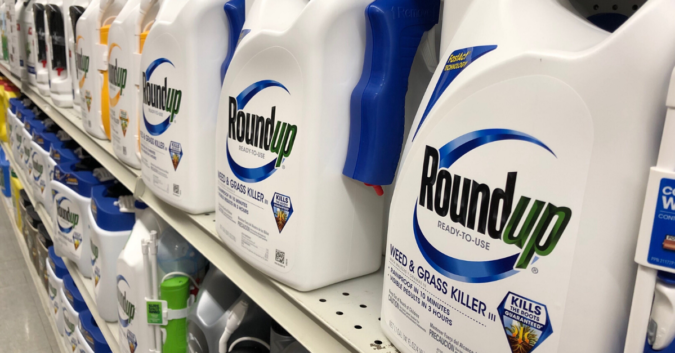Chemical and pharmaceutical giant Bayer has agreed to pay more than $10 Billion to settle claims that the weed killer Roundup® causes cancer. The settlement, which will cover some 95,000 ongoing cases, is one of the largest settlements in the history of U.S. civil litigation.
Most of the cases brought against Bayer claim the maker of Roundup ignored warnings that its product included chemicals that can cause the development of cancer.
Several high-profile cases have awarded plaintiffs millions of dollars in damages. According to the New York Times, individual plaintiffs in Wednesday's settlement will receive payments ranging from $5,000 to $250,000, depending on the strength of their cases.
Glyphosate: A Probable Carcinogen
Bayer inherited the product liability for Roundup in 2015 when it acquired Monsanto — the original manufacturer of the popular herbicide. While both Bayer and Monsanto maintain that the product is safe to use, the active ingredient in Roundup, glyphosate, has been classified as a probable carcinogen by the World Health Organization (WHO).
Citing 2 large case studies of non-Hodgkin’s lymphoma in 2015, the WHO reported a “statistically significant” increased risk of the disease “in association with exposure to glyphosate.”
Since that report was published, several cities and districts around the world have banned or restricted the use of glyphosate.
Bayer itself appears to acknowledge the risk, as Wednesday’s agreed-upon settlement includes an earmark for some $10 Billion in outstanding litigation, with $1.25 Billion set aside for potential future claims from Roundup customers who develop non-Hodgkin’s lymphoma.
Critically, the agreement includes no admission of wrongdoing on Bayer or Monsanto’s part. Some of the earmarked funds will be used to create an independent panel of experts who will seek to answer the question of whether or not glyphosate causes cancer and, perhaps more importantly, at what levels it becomes toxic.
If the panel determines Roundup is indeed carcinogenic, Bayer will no longer be able to claim otherwise in future litigation.
‘Putting Out Part of a House Fire’
With the risks in mind, Bayer is hoping the settlement will put most of its legal troubles to bed, including the remaining 25,000 or so claims involving plaintiffs who did not agree to be a part of the agreement.
“In my experience, all those cases that have not yet been settled will quickly be resolved by settlement,” Kenneth Feinberg, a Washington lawyer who oversaw the mediation process, told the New York Times. “I will be surprised if there are any future trials.”
Others, however, are not convinced. One Houston lawyer representing some 5,000 claimants told the Times that the settlement is “like putting out part of a house fire.”
As of last fall, more than 42,000 plaintiffs in the U.S. were suing the makers of Roundup claiming their use of the herbicide gave them cancer.
Perhaps the most famous Roundup lawsuit involved a California groundskeeper whose duties required him to mix and spray hundreds of gallons of Roundup. In 2018, a court ordered Bayer to pay the groundskeeper $289 Million (later reduced to $78 Million), noting that Monsanto should have warned consumers about the product’s risks.
But there remains some disagreement, even at the regulatory level about those risks. Last year, for example, the U.S. Environmental Protection Agency (EPA) ruled it was a “false claim” to definitively state glyphosate causes cancer on product labels.
Similar statements from state courts and the National Institutes of Health (NIH) further support Bayer’s claims, but critics say most of those rulings were based on insufficient evidence that was provided by Monsanto itself — they were not based on independent scientific research.
